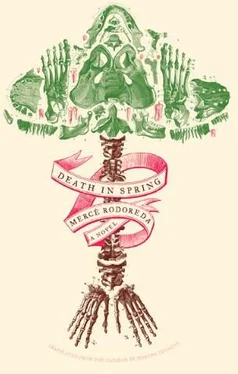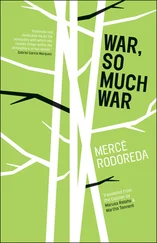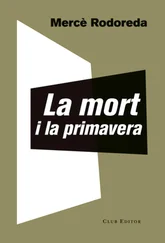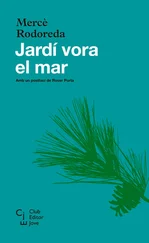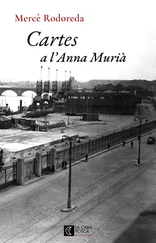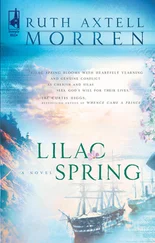A boy who was not much older than me drew the stick. His face was like others’, but his nose was straighter, his cheeks more delicate. When he glimpsed the tip of the stick, he turned pale with the pallor of fear, and everyone knew — even before seeing it — that he had chosen the forked stick. Always, always, the one who drew the forked stick turned pale.
The blacksmith and a group of men accompanied the boy to the upper edge of the village, where the water from the river thrust itself downward, toward darkness. The boy stripped, and they gave him a drink; while he drank, his eyes wandered from one man to the other. He took too long to dive into the water, and the men had to throw him in, alone and naked. I had gone to watch, my stepmother beside me, and when the boy plunged into the water, she pulled a piece of string from her pocket and began swinging it. A man noticed us, and he struck me on the chest with his fist, knocking me to the ground. All of the men raced to the lower edge of the village to watch for the boy. In the Plaça, three women were pounding and mixing together wisteria blossoms and bees in a wooden mortar: this was the ointment to dress the boy’s wounds, re-sheathing the skin over his blood. Senyor observed it all from his towering window. He was waiting for the boy to emerge and announce that the village would soon be swept away by the river. He could see when a man entered the water and when he emerged. If the man was unconscious when he reappeared, the villagers would fish him out and carry him to the riverbank. As soon as the man had left the water, Senyor would close his window.
My chest hurt, and I headed for home. My stepmother followed me. We sat on the step in front of the house. I looked at her and she laughed, and all the while the water beneath the village was thrashing the boy against the rocks, mutilating him.
When they pulled the boy from the river, he was dead; they returned him to the river. Those who died in the water were returned to the water. The river carried them away and nothing was ever known of them again. But at night, at the spot where the bodies were thrown into the water, a shadow could be seen. Not every night. Not today or tomorrow, but on certain nights a shadow trembled. They said the shadow of the dead returned to the place where the man was born. They said that to die was to merge with the shadow. That summer, the shadow of the boy was clearly distinguishable. It was unmistakably him because he had been separated from one of his arms, and the shadow had but one arm. Struggling against the current, the shadow — which was only will, not body or voice — attempted to slip beneath the village. And as the shadow struggled, the prisoner neighed.
Only one prisoner remained in the village. Long ago, there had been another, and he had lived, they said, twice as long as most people did. The prisoners were thieves: the village only punished thieves, and they punished them by taking away their humanity. The blacksmith built the prisoner’s cage. He made it small, just large enough for a person to sit in, but not lie down. The first prisoner had had a wooden cage; everyone recalled how he passed the time biting his nails until blood spurted from them. Then he would begin to sob. The wooden cage rotted before the prisoner had ceased to be a person, and they were forced to build a new one. The iron one, they said, would last a lifetime. In winter, the villagers placed logs around the cage, so the prisoner would not be cold. Everyone loved the prisoner. They took him food and water every day. He was kept below the wash area, and when the women gathered there, the mad ones would call out, neigh, neigh for us. Sometimes, when the prisoner was alone, he would attempt to neigh, but instead of a neigh, a kind of yowl would emerge, a strange voice. On Sundays, many villagers went with their children to see the prisoner. They would toss him morsels of meat, close to the bars, and he had to catch the scraps with his mouth. If he couldn’t catch them, he had to pick them up from the ground with his teeth, like a horse eating grass. When no more meat could fit inside him, he would close his mouth and eyes, shutting the villagers out, and on the following day he would be punished. If it was summer the blacksmith would smear honey on him, and soon the prisoner became a fury of bees. Before honey could be smeared over his body, he would be seated in a bucket, his ankles and wrists tied with heavy rope to the bars of the cage.
The prisoner was so thin you could count his ribs, and his eyes had red streaks like my mother’s. No one knew what he had stolen, but they all agreed that he had stolen. If it was winter, instead of smearing him with honey, they would force him to drink unfiltered water from Font de la Jonquilla. Worms would emerge through his skin, and as soon as they did, they died, because they could not live without water. The prisoner was wasted after that, drained of strength. He would recover very slowly and open his eyes, without looking. I saw him once, hands and ankles tied, his head leaning motionless against his shoulder, a swollen vein in his neck.
That summer as the shadow struggled, the prisoner neighed and the horses responded. The following day, the whole village gathered to watch the blacksmith remove the cage. They lifted it in the air and abandoned it on Senyor’s mountain. When the prisoner realized he was no longer surrounded by iron bars, he began to neigh with all his remaining force, spreading his arms and legs wide. He remained in that position, as if still tied. He is no longer a person, the blacksmith announced. The skin on his wrists and ankles had lighter-colored stripes, as if the sun had been unable to penetrate the rope that sometimes bound him. Two men stood him on his feet, and when they let go of him, he fell to the ground, again spreading his arms and legs. The blacksmith turned to face the group and announced once more that the prisoner was no longer human, but he would live longer than they would.
Another summer ended. It was as though all the dead autumns were the same, with their relentless insistence on returning. Autumn was here again. Nailed to the rock wall, from the ground to the top of the cliff, autumn was a surge of fiery leaves that would be snatched away when the sulphur-bearing wind returned, grown old and icy. Leaves fell on the village streets and on the river that carried them away. Swirling in whirlpools, they drifted to the clock tower, as far as Pedres Altes. They tumbled down, still bearing the scent of their former, tender-green selves. The sickly stems that had held the leaves all summer were now devoid of water, and they thudded to the ground as well. The leaves were blown down and swept away. We waited for the last to drop so we could rake them into piles and set fire to them. The fire made them scream. They screamed in a low voice, whistled even lower, and rose in columns of blue smoke. The smell of burnt leaves pervaded houses and air. The air was filled with the cessation of being. If the leaves burned too slowly, we poked the pile with a cane, lifting one side so the flame could leap upward. Little by little, spring died in autumn, on the round stones in the Plaça. Soon the first, small rain would extinguish the last warmth and unpaint the houses. Everything pink faded, vanishing in black trickles. The village was a different village with no leaves and no color. A village of weary, decaying houses, clustered together above the water, embedded in Senyor’s mountain.
One night when the horses were standing asleep in their enclosure and the village was dead, my stepmother and I went out. We strolled past the horse fence, my stepmother’s dress down to her feet, her hair to her waist, her forehead capturing the nocturnal dew. She told me she had seen the blacksmith’s son sitting in front of his house, mere bones clothed in skin, his face all eyes. We held hands as we walked; then all at once we laughed because we had turned to gaze at the shadows stuck to our heels. We jumped backwards, treading on them. We turned to face the shadows and they stuck to the tips of our toes, and we trod on them. Suddenly my shadow was longer than hers, then hers longer than mine. I caught an unfamiliar scent. I couldn’t say of what herb or what flower hidden within the earth, something that — before going to sleep — was preparing the scent it would offer at the conclusion of cold. We climbed up onto the fence and sat on the rail. She told me she knew many things: far away the river was flowing; the dead were asleep; trees that held a dead person likewise died a bit; cement inside a dead person took a long time to dry. She said we knew many things about the light, about everything that transpires as it goes round, returning to us — neither too fast nor too slowly, like our shadows cast on the sundial hours. The same, always the same, no beginning, no ending, never tiring. You and I grow tired. She stretched out her arm, searched for my face in the dark, and stroked my brow three times with her finger. She climbed down from the fence, wanted to play, to make ourselves into a ball. We sat on the ground, our knees against our chests, arms clasping knees. We played for a while, leaning first to one side, then the other. Let’s stretch out, she said, and roll far away. The trampled grass allowed itself to be trampled as it played with us. And the horses slept.
Читать дальше
